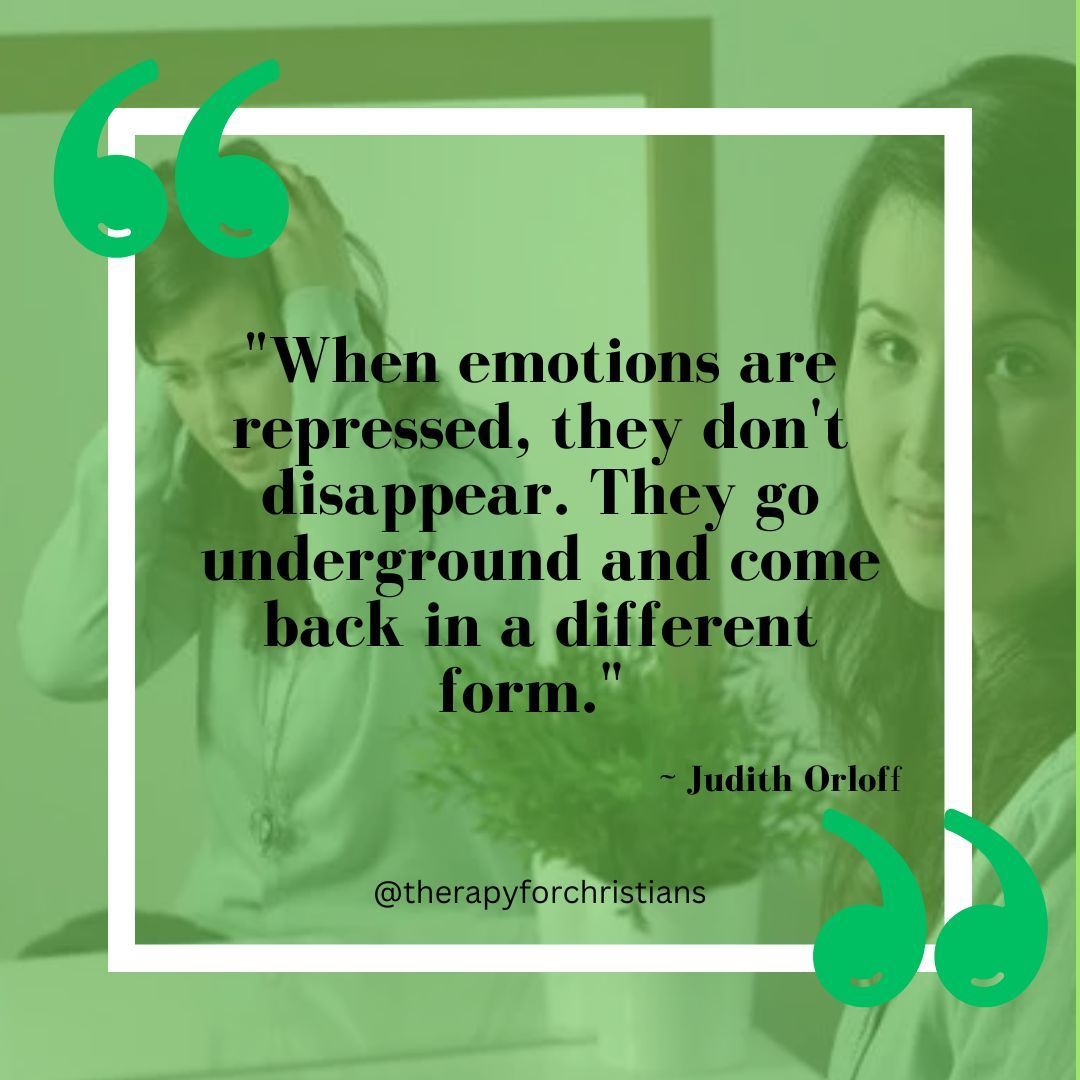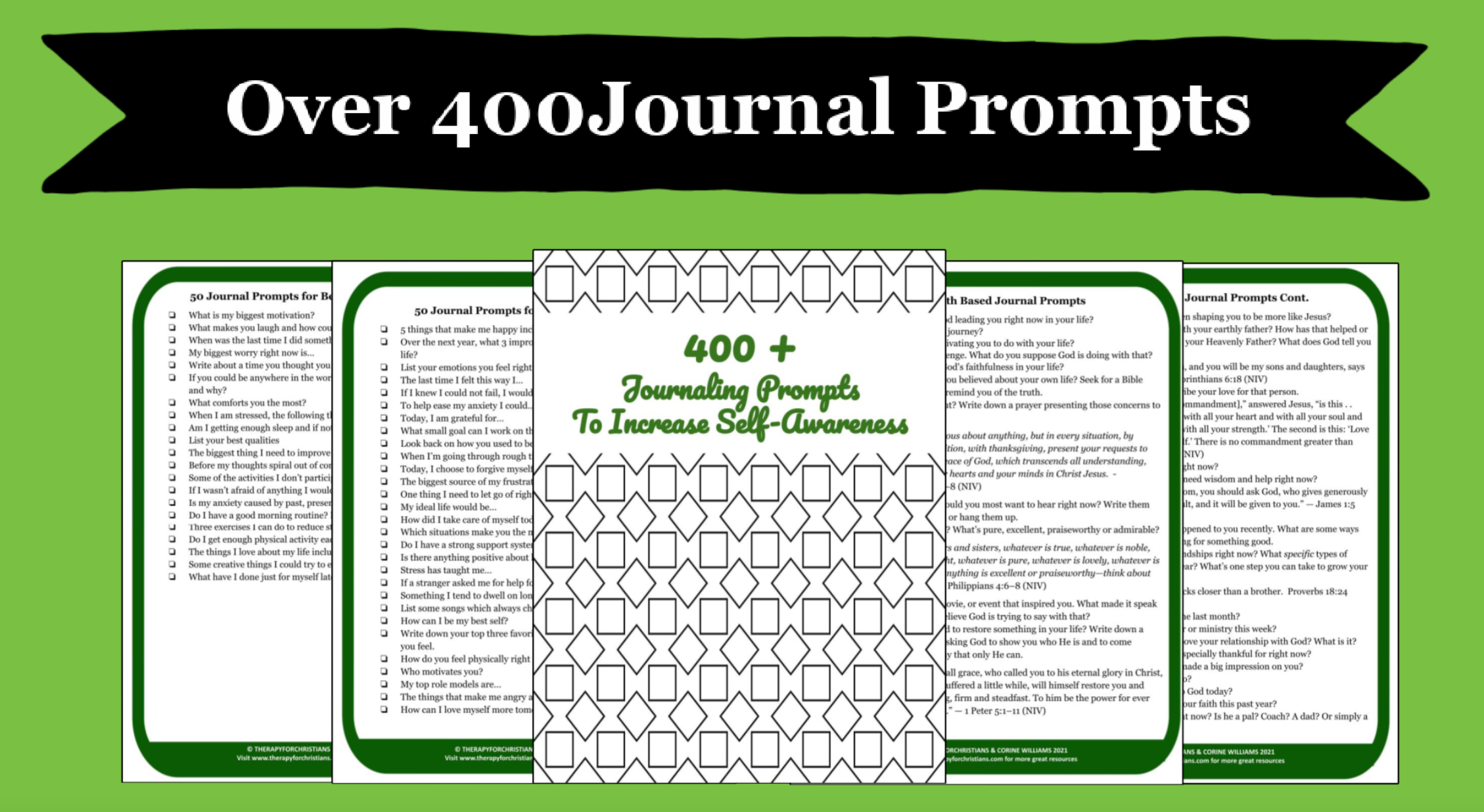
Do you ever feel like your emotions are bottling up inside of you? Do you often find yourself struggling to express your feelings? If so, you may be repressing your emotions. This article will explore the signs of emotional repression, how it affects us, and what steps we can take to release these repressed emotions.
What Are Repressed Emotions?
Repressed emotions are any positive or negative emotions we try to ignore, or push away. These may include sadness, anger, disappointment, fear, joy, love, and more. Emotional repression is usually done unconsciously. Unconscious repression means that the person is unaware of the negative emotion or positive emotions they are avoiding.
Repression vs. suppression
Repression and suppression are two distinct forms of emotional regulation. While repression involves pushing away or unconsciously blocking out feelings; suppression suppression is a conscious effort to control our emotional responses to certain stimuli. We suppress our emotional reactions and maintain a calm and collected demeanor and to fit in with the expectations of those around us or appear more socially acceptable.
Suppressing emotions can be helpful in certain situations, such as when dealing with difficult people or controlling our feelings in a professional setting. However, it can also lead to frustration if we cannot express our feelings.
when dealing with difficult people or controlling our feelings in a professional setting. However, it can also lead to frustration if we cannot express our feelings.
When considering repression vs. suppression, it's essential to understand that both can negatively affect mental health and physical health. When we repress emotions, these suppressed feelings remain, leading to bottled-up stress and anxiety over time. On the other hand, suppressed emotions can leave us feeling numb and disconnected from our true selves.
Whether we are engaging in emotional suppression or repression, the key is learning how to identify these patterns of behavior within ourselves to take steps toward releasing our feelings before they negatively impact our physical and mental health.
How to Know if You Have Repressed Emotions
The first step to dealing with repressed emotions is recognizing when you are repressing them.
Symptoms and Signs of Emotional Repression
Emotions are a natural part of the human experience. However, when people try to ignore or repress their feelings, this can lead to various physical and psychological issues. Knowing repressed emotions symptoms can help people identify when they need help.
1. Physical Symptoms
Freud discovered links between repression of emotion and physical symptoms nearly a century ago. We know that repressed emotions often manifest through physical symptoms, such as headaches, exhaustion, tightness in the chest or throat, digestive issues (e.g., IBS or acid reflux), skin rashes or breakouts, difficulty sleeping, muscle tension, and pain.
2. Emotional Symptoms
Emotional symptoms may include feeling overwhelmed by life events, irritability, or unexplained anger/sadness/fear/anxiety/shame. People who repress their emotions may also struggle with impulse control, perfectionism, low self-esteem, and difficulty regulating emotions when stressed. It is also common for people to engage in harmful behaviors (such as overeating or substance abuse) to cope with emotional distress.
3. Cognitive Signs
Cognitively speaking, repressing emotions can lead to impaired concentration, memory problems, and difficulty with problem-solving. People may also feel disconnected from themselves and others due to an inability to access their inner thoughts and feelings. This can be particularly true for those who have experienced trauma in childhood; they may feel unable to trust their judgment due to traumatic memories associated with strong emotions being repressed over time.
Recognizing the signs and symptoms of repressed emotions is an essential first step in seeking help from a mental health professional or engaging in self-care activities that promote emotional regulation (such as mindfulness meditation or cognitive behavioral therapy).
What Does the Bible Says about Repressed Emotions
The Bible does not use the specific term "repressed emotions," but it does discuss emotions and their proper expression. Here are some relevant Bible verses:
Proverbs 14:29 - "Whoever is patient has great understanding, but one who is quick-tempered displays folly." This verse implies that it is important to control one's emotions and not let them control us.
James 1:19-20 - "My dear brothers and sisters, take note of this: Everyone should be quick to listen, slow to speak and slow to become angry, because human anger does not produce the righteousness that God desires." This verse emphasizes the importance of listening before speaking and avoiding quick anger.
Ephesians 4:26-27 - "In your anger do not sin": Do not let the sun go down while you are still angry, and do not give the devil a foothold." This verse suggests that it is appropriate to feel anger, but we should not let it consume us or lead us to sin.
Psalm 55:22 - "Cast your cares on the Lord and he will sustain you; he will never let the righteous be shaken." This verse encourages us to bring our emotions and worries to God and trust Him to help us through them.
Overall, the Bible emphasizes the importance of controlling our emotions and expressing them in healthy ways, while also trusting in God to help us through difficult emotions.

9 Ways to Cope With Strong Emotions Without Repressing Them
It can be challenging to face negative emotions, especially when we don't want to acknowledge them. However, emotional repression is not a healthy way of dealing with our feelings and can lead to severe physical and mental health issues down the line. Here are ten ways you can cope with negative emotions without repressing them:
Seek Professional Help.
If you're struggling to cope with negative emotions, seek professional help. A therapist can give you tools and strategies to deal with difficult feelings in a healthy manner. You can find a Christian Therapy near you by searching our directory.
Stay in Touch with Yourself.
It's essential to stay in touch with your own emotions and needs. This can be done by taking time daily to check in with yourself. Ask yourself how you're feeling and what you need to feel better.
Use "I" Phrases to Feel Better.
When you're feeling down, using "I" statements can be helpful. For example, try saying something like, "I feel sad" or "I need some time alone." These phrases can help you validate your emotions and process them healthily.
Become Curious about Yourself.
One way to cope with negative emotions is to become more curious about yourself. This means stopping harsh self-judgment and trying to understand why you're feeling certain emotions. What triggers them? What thoughts or beliefs are attached to them? When you become curious about your emotions, it becomes easier to deal with them healthily.
All Yourself to Feel Discomfort When Others Tell You About Their Feelings.
Understanding that you may feel discomfort when others share negative emotions is essential. This is perfectly normal! It doesn't mean that you don't care about the other person. It just means that hearing about negative emotions can be challenging for everyone. If someone opens up to you about their feelings, just let them know you're there for them and offer any support you can provide.
Journal
Journaling is a great way to process difficult emotions. Writing down your thoughts and feelings can help you make sense of them and provide an outlet for any pent-up emotions.
Journaling is also an excellent way of expressing emotions. Expressing your emotions can promote better communication and connection with other people. When you release repressed emotions, it helps foster self-awareness and understanding of our patterns while allowing us to explore different perspectives on life's challenges. If you need help with coming up with journaling ideas, check out this collection of over 400 journaling prompts.

Know your Triggers
Once you know your triggers for negative emotions, it can be easier to cope with them. Please list the things that trigger your negative feelings, and then develop strategies for dealing with them when they arise.
Practicing Relaxation Techniques Such as Meditation
Relaxation techniques like meditation and deep breathing can help you healthily process difficult emotions by connecting your mind and body.
Breathing exercises are one of the simplest yet most effective ways to cope with difficult emotions. Take some deep breaths and focus on counting each inhales and exhale. This will help bring your body back into balance and provide a sense of calmness in moments of distress.
Even just five to ten minutes of meditation or deep breathing daily can make a huge difference in coping with negative emotions.
Connecting with Others
Everyone needs support occasionally, so don't hesitate to seek help when needed. Connecting with friends, family members, or online communities can provide emotional support and understanding in distress.
If you are looking for additional resources on helping you express your feelings, check out our recommendations below:
It Is Well: A Christian Guided Journal![]() Mental Health Journal for Christians
Mental Health Journal for Christians![]() The Emotional Freedom Workbook
The Emotional Freedom Workbook![]()
Final Thoughts on Repressed Emotions
Dealing with repressed emotions can be a difficult and complex process. It's important to remember that you're not alone in this process, as many people struggle with emotional repression.
By using some of the coping strategies listed above, you can start to address your feelings in a healthy manner. And if necessary, don't hesitate to seek professional help from a mental health professional for further guidance and support. Remember that feeling negative and positive emotions is okay—it is part of being human! With practice and dedication, you can learn how to express your emotions without feeling overwhelmed or powerless. Good luck!
About the Author:
 Corine Williams, Ph.D. is Clinical Psychologist that is currently seeing clients in the States of Maryland, New Jersey, and New York. You can find out more about her practice by visiting www.therapyforchristians.com/corinewilliams. In addition to providing individual therapy, Dr. Williams is also passionate about writing books and designing merchandise that educate, uplift, and normalize mental health subject in the Christian community. You can find out more about her at www.booksbycorine.com or by visiting her amazon profile here: https://www.amazon.com/Corine-Hyman/e/B00AWZ5FL2
Corine Williams, Ph.D. is Clinical Psychologist that is currently seeing clients in the States of Maryland, New Jersey, and New York. You can find out more about her practice by visiting www.therapyforchristians.com/corinewilliams. In addition to providing individual therapy, Dr. Williams is also passionate about writing books and designing merchandise that educate, uplift, and normalize mental health subject in the Christian community. You can find out more about her at www.booksbycorine.com or by visiting her amazon profile here: https://www.amazon.com/Corine-Hyman/e/B00AWZ5FL2
Help us increase mental health awareness in the Christian community by donating through our paypal link here: www.paypal.com/therapyforchristians, joining our mailing list by clicking below, or join our provider list here: Provider listing
Disclaimer: the information, including but not limited to, text, graphics, images and other material contained on this article are for informational purposes only. No material on this site is intended to be a substitute for professional medical advice, diagnosis or treatment. If you are looking for a Christian counselor near you, please check out our directory located here: Christians Therapist Near Me
.png)
.jpg)
)-(3).jpg)











